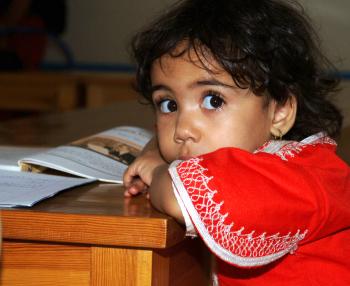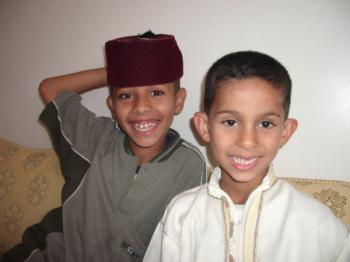Casablanca is a city of deep social divides

Casablanca is located on Morocco’s Atlantic coast and has a metropolitan population of approximately 3.9 million. It is home to the world’s fifth largest mosque, which has room for 25,000 worshippers. The city is characterised by great contrasts: while luxurious beaches and villas are found near the harbour, the centre of town is encircled by the so-called “bidonvilles” – shantytowns that began to grow in the 1920s. As industry developed, jobs were created and rural migrants came to work in the factories.
In 2004, the government launched its “Villes sans Bidonvilles” (cities without slums) programme, aiming to improve the living conditions of 293,000 households in 83 Moroccan towns and cities. An estimated 490,000 people live in precarious conditions in the bidonvilles of Casablanca, in sub-standard housing, often without running water or sanitation.
Life in these informal settlements is tough: overcrowding, drugs, prostitution, crime, disease and family dysfunction are part of everyday life. For children growing up in these conditions, it can be incredibly hard to break the cycle of poverty when their home life is marked by instability and violence. In addition, children with this kind of background are stigmatised by society, which can lead to a diminished feeling of self-worth and impede a child’s chances in life.
Supporting families to break the cycle of poverty
However, it is not poverty alone that causes this violation of children’s rights, but also a lack of awareness. To some degree, child labour is socially accepted in the region and much work remains to be done to raise awareness and provide education.
What we do in Casablanca

SOS Children's Villages began its work in Dar Bouazza, about 25 km west of central Casablanca, in 2000.
Family-based care: For children from the region who are no longer able to live with their parents, three SOS families can provide a loving home. In each family, they live with their brothers and sisters and are affectionately cared for by their SOS mother. In some of our SOS families, two SOS mothers now care for the children in shifts (day and night); they overlap during the busy hours of getting children ready in the morning and after school.
The children from the SOS Children’s Village attend the local kindergarten and schools together with children from the community. This means that children from SOS families are integrated into the local community from a young age.
Support for young people: When young people from the children’s village are ready to move out of the family home in order to pursue further education or vocational training, the SOS Youth Programme provides shared accommodation in downtown Casablanca. Other young people live in families, either foster families, or wherever possible, their families of origin. With the support of qualified counsellors, the young people learn to take responsibility, plan their future and prepare for independent adult life.
Supporting young people with special needs: Since 2002 we provide special care to young people with special needs who have grown up in our care. They live together and receive therapy and educational programmes and vocational trainings. We help them until they are able to live independently.